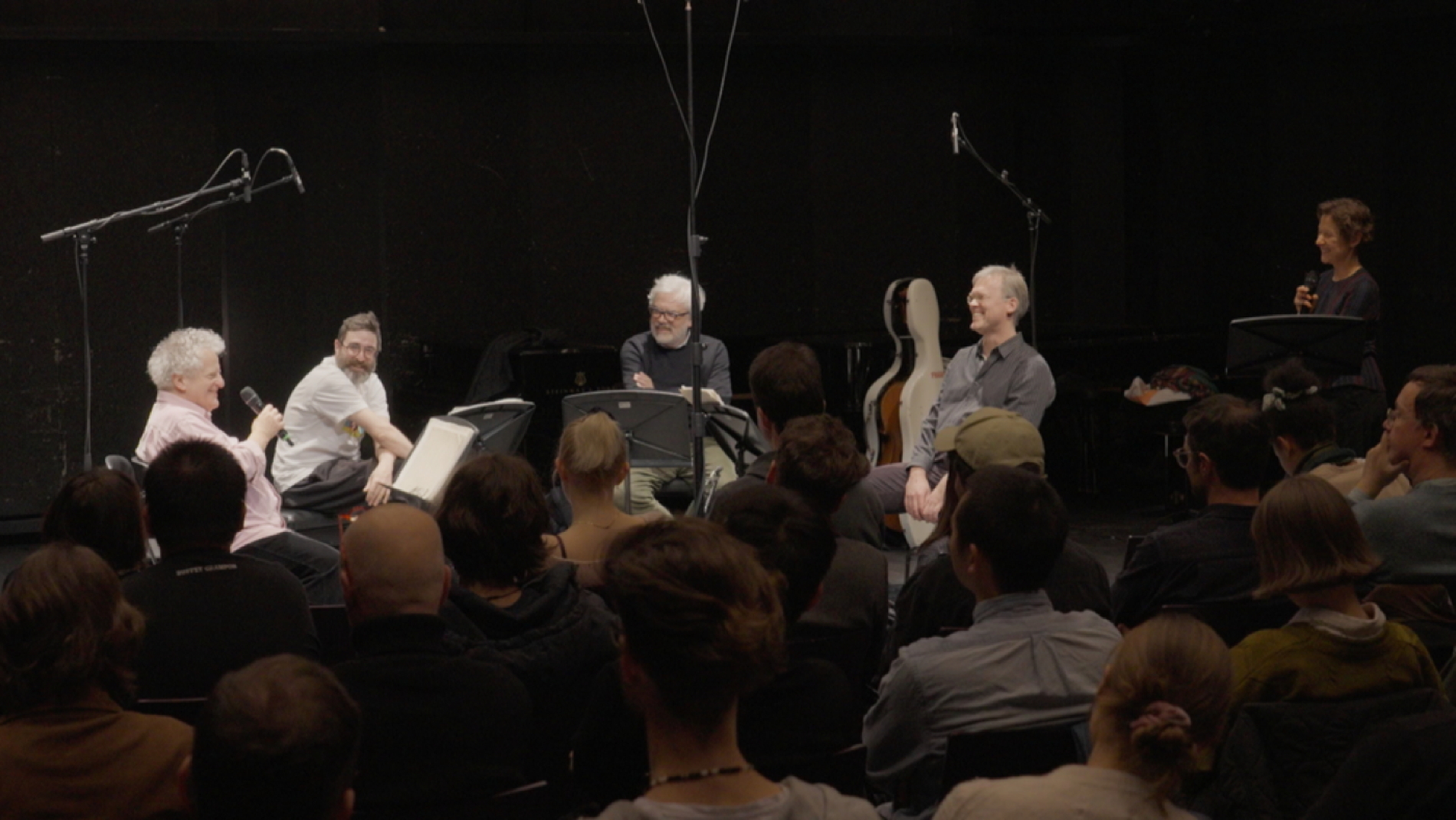Gabrielle Weber: workshop with Arditti Quartet at ZHdK
The London-based Arditti Quartet is synonymous with contemporary music for string quartet. Since 1974, the ensemble led by violinist Irvine Arditti, dedicates itself entirely to the contemporary repertoire, both through concerts and recordings as well as in its work with young composers. At the end of February, during a stop on the quartet’s 50th anniversary concert tour, I accompanied the four musicians to a public workshop at the Zurich University of the Arts (ZHdK).

Continue reading “Composing for string quartet with the Arditti Quartet”

